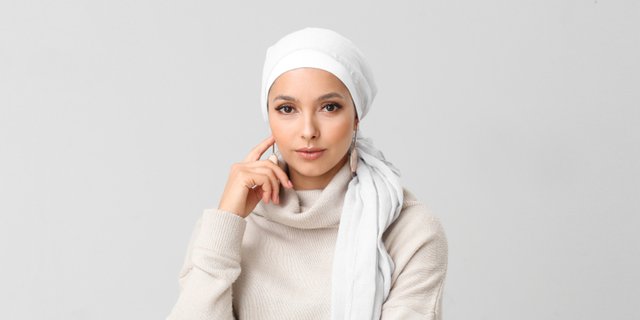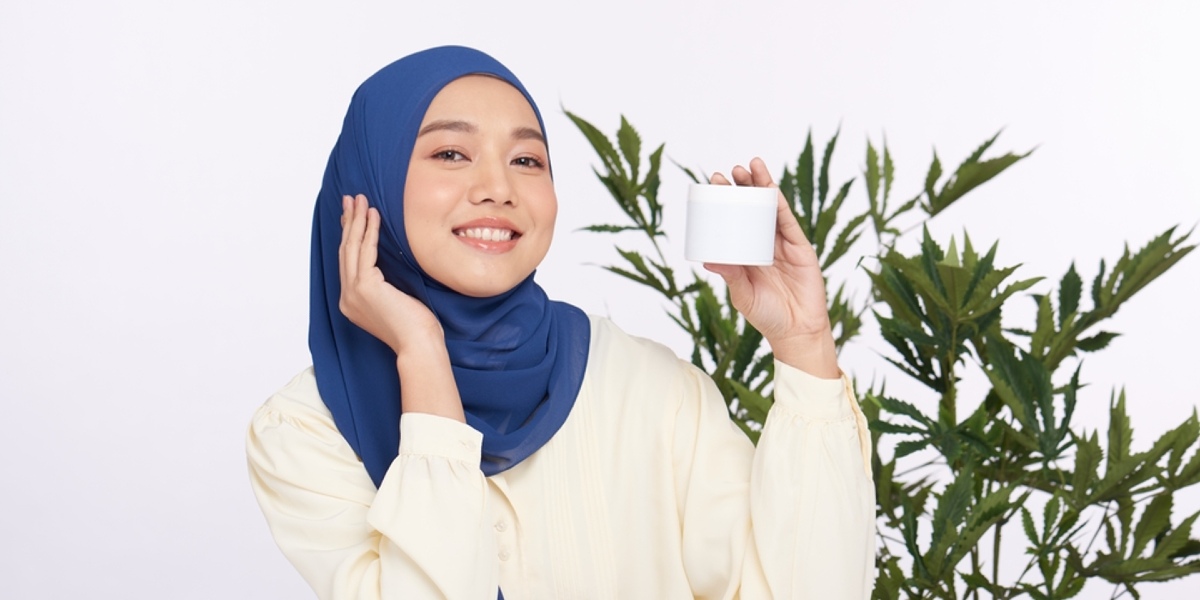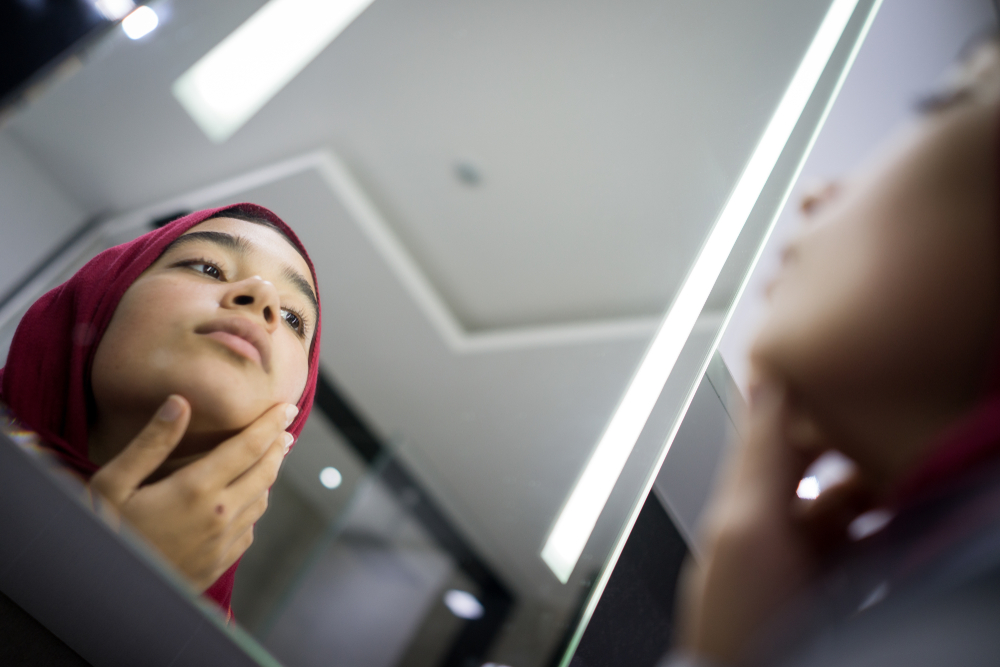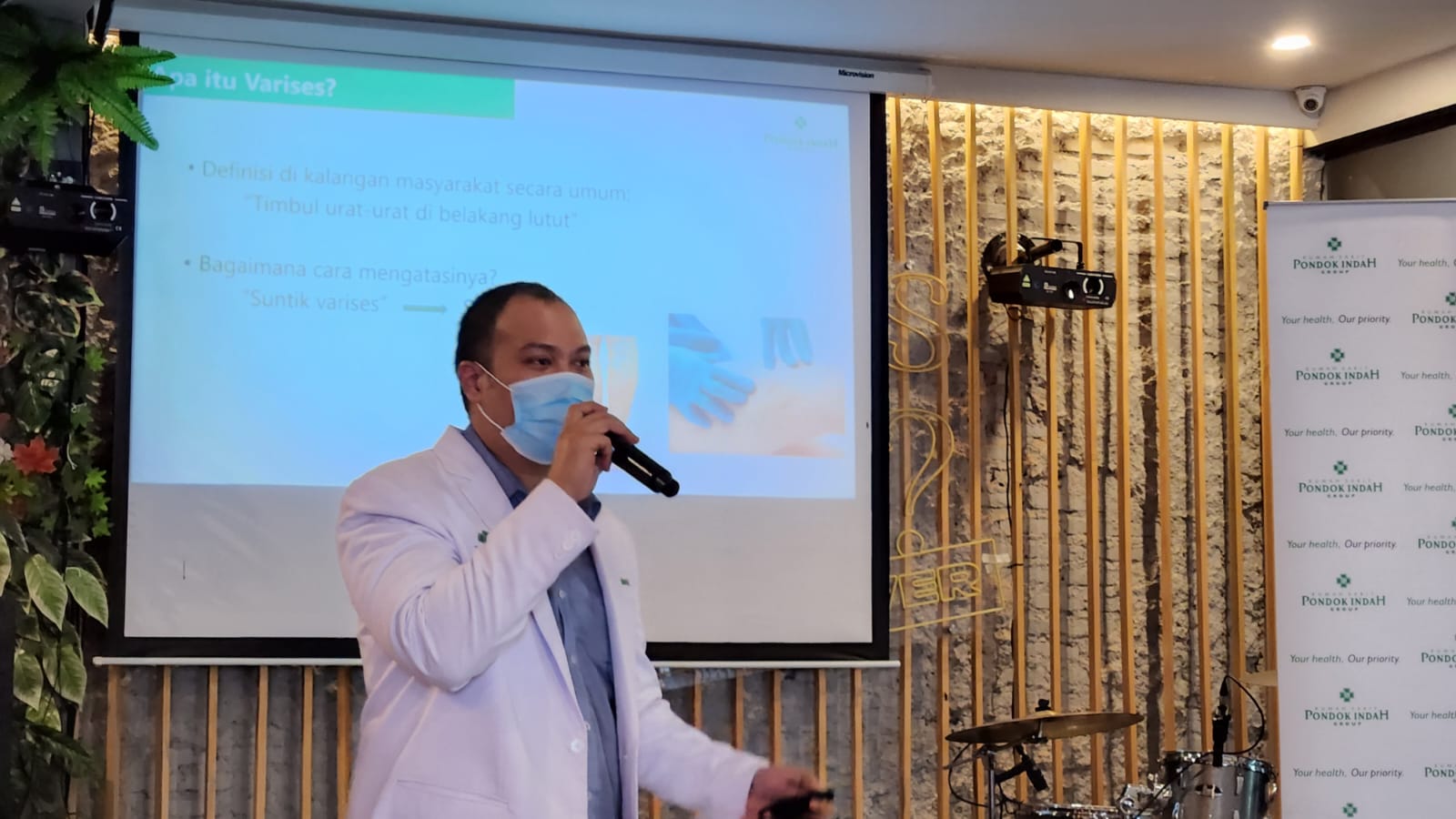Mulan Jameela Wears Hollywood Glam Makeup, Her Aura Shines
Her 'luxurious' appearance with glamorous makeup, bling-bling detailed clothing, and accessories by Rinaldy Yunardi.

Dream - During fasting, Muslims are not allowed to eat and drink from dawn until sunset. This makes the skin very prone to dehydration due to lack of fluids in the body.
During the 14-hour fast, activities are still hectic. Sunlight and exposure to air conditioning make the skin even drier and dehydrated.

If left untreated, dehydration can have negative effects on the body and skin. The problems that arise usually make the facial skin dry and dull, making it look less fresh.
Here are some things you can do to keep your skin healthy during fasting:
As Ramadan approaches, let's review our skincare routine. During Ramadan, it is undeniable that sleep patterns change, as well as our diet.

"During fasting, the skin may become more dehydrated, rough, puffy eyes, dull, and more sensitive, so skincare needs to be adjusted," said Dr. Suksmagita Pratidini, Sp.DVE, Specialist Dermatologist and Venereologist in Aesthetic at Pondok Indah Hospital in an event titled 'Women's Skin Throughout the Ages: Skin Health and Problems,' Wednesday, March 15, 2023.

Changing skincare is not easy, but choosing ingredients that are more hydrating will help keep the skin healthy during fasting. So always use skincare that can hydrate the skin to the maximum.
"When the skin changes, its care must also change. Hydration is key, as well as protection. For hydration, you can use ingredients such as hyaluronic acid, glycerin, ceramides, gluconolactone, and lactobionic acid," said Dr. Suksmagita Pratidini.
Sometimes when the skin is dry and peeling, we often think it is dead skin that needs to be removed. Then exfoliating the skin becomes something we do. However, it is best not to use exfoliation.

"Do not use exfoliating agents and high-concentration skincare. Also, avoid treatments that require long downtime, such as peeling or causing wounds," said Dr. Suksmagita.
Dream - Varicose veins are a condition where blood vessels enlarge and become swollen. This swelling most commonly affects the legs.
Normally, the arteries in our body carry blood from the heart to all tissues, and the veins return blood from the entire body to the heart, resulting in blood circulation.
Veins have one-way valves, which means blood can only flow in one direction. If the veins are damaged and do not function properly, blood can flow backward. This causes blood to accumulate in the blood vessels instead of flowing to the heart. This is what causes the blood vessels to stretch, twist, enlarge, and become swollen.
The blood vessels farthest from the heart are most affected, such as the legs. This is because gravity makes it difficult for blood to flow back to the heart.

"The risk factors for varicose veins are influenced by gender, with women being more susceptible, and also influenced by pregnancy, high heels, degenerative conditions, and obesity," explained Dr. Febiansyah Kartadinata Rachim, Specialist Doctor in Vascular and Endovascular Surgery Consultant at Pondok Indah Hospital in an event titled Minimal Invasive Varicose Vein Treatment, Monday, November 21, 2022.
Other risk factors for varicose veins include smoking, alcohol consumption, and family history.
Varicose veins have unique symptoms such as visible dilation of the veins in the legs and the appearance of non-healing or recurring wounds on the legs.

"Another factor is swelling in the ankles, easy cramps, and pain," added Dr. Febiansyah.
If left untreated, varicose veins can cause increased pain, swelling, and inflammation in the blood vessels. Blood clots can also form in the deep veins, causing blockage of blood flow.
Varicose veins can be managed by modifying lifestyle, open surgery, and compression therapy.
"Modifying lifestyle such as elevating the legs, avoiding prolonged standing or sitting, exercising, maintaining weight, and protecting the legs from trauma," said Dr. Febiansyah.
Cobain For You Page (FYP) Yang kamu suka ada di sini,
lihat isinya
Her 'luxurious' appearance with glamorous makeup, bling-bling detailed clothing, and accessories by Rinaldy Yunardi.
Heaven Lights collaborates exclusively with Blibli through the Heaven Lights x Mega Iskanti collection, which brings the beauty of Spain with the theme 'Letter from Spain'.
Take proper care to prevent your skincare from fading due to water.
Yves Saint Laurent introduces limited edition packaging for their cushions.
Don't let clients feel uncomfortable when their faces are being made up.
Ziva always succeeds in bringing the beauty of Indonesian women in her captivating appearance.
Concealer will easily smudge and break if applied incorrectly. The result can look less natural.
Can fix all skin problems, from dryness, acne to spots.
Prevent makeup smudges when using cushion on oily skin with tips from beauty content creator.
Clean hands, tools, and makeup products are very important for MUA clients.
Apparently, this is the effect of using shampoo filled with water.
"Follow the blood circulation," says a dermatologist.